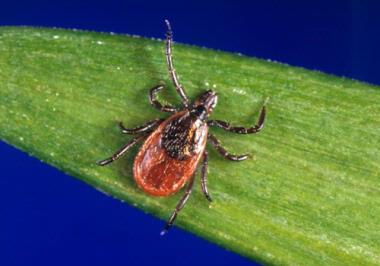Semi-rural life—that tree-sheltered, patio-euphoric, sandaled way of being that lots of people like here in Western Massachusetts—just isn’t what it used to be. That’s a reflection with a comic level, but there’s a level of wistfulness to it, too—and fear. The changes are real, and we have to take them seriously.
Two weeks ago, a friend asked if my family and I had “changed our routine” because of the recent bulletins about West Nile virus and Eastern equine encephalitis. She and her husband, she said, had regretfully given up eating dinner on their patio because of the admonitions not to be outside at dusk.
Already she was nostalgic for the views of the sunset they had enjoyed at their outdoor table, and the beauty of the hour when colors change—when pastel flowers take on a glow as the moon begins to rise. There’s a sadness to having to think defensively about twilight.
I told her that I’d already given up the habit of running around the corner of my house to my compost pile after nightfall because for years, bears have been coming closer to town centers. Late in September a few years ago, we had one on our property. Now I don’t go out of the house in the evening without looking around me as I never used to before the bear strolled through our yard and several of our neighbors’ yards, knocking down bird feeders as he went but in other respects behaving quite well.
Would another one be so well-behaved?
But back to mosquitoes, which are far more likely to be a problem on our property than bears: it’s a pain in the neck to have to muck out the stone birdbath after every rain, and anyway, I liked seeing birds splashing there. But, experts warn, mosquitoes can breed in standing water in as few as four days, the opportunistic little devils.
And mosquito netting: wasn’t that for equatorial swamps, for malarial areas in Africa and Asia? But now the Massachusetts Department of Health is recommending covering babies in cribs and toddlers in playpens with netting if the crib or playpen is outside on a warm day.
Then there are ticks, which have taken a lot of the fun out of working in the garden. A few decades ago, the deer tick that carries Lyme disease rarely strayed north of Connecticut. Busy with a job and two children, I always told myself I’d polish up some gardening skills when my routine slowed down. Now that routine is a little slower—and Lyme disease is a quiet epidemic up here, with 2,000 to 4,000 cases confirmed in Massachusetts each year and diagnosis so tricky that victims wind up in brainbending battles with their insurance companies. Ticks carry other serious diseases, like babesiosis and anaplasmosis.
Gone are the days when you could feel safe ripping out wild philodendron from an overgrown flowerbed in sandals, or fighting the good fight with proliferating maple seedlings without a hat; ticks don’t fly or leap, but they can fall on you from overhanging trees, or piggyback on you or your clothes as you step into a patch of weeds. The first line of defense against ticks and mosquitoes is the same: dress to cover, with hat, long sleeves, long pants tucked into socks.
Because of global warming, both these pestilential mites—the tick and the mosquito—are active for more of the year, and the growing season for the grass and weeds in which the tick may lurk is also longer, as is the season in which the birdbath must be kept from becoming a mosquito incubator.
This isn’t just summer news anymore. Late in September, statistics on West Nile cases were on the rise; at press time the state had designated the region from Winchendon and Royalston south through Amherst and Belchertown down to Springfield and Agawam a high-risk area for mosquito-borne illness. When will the alarm end? Mosquitoes are supposed to die off en masse after the first frost, but some entomologists say it takes a couple of frosts to wipe out the diehards.
And last February and March, people in some of the nation’s frostiest regions were rushing their dogs to vets to treat tick bites.
There are serious threats here: Lyme disease, with its fevers, fatigues and, in some cases, neurological symptoms, isn’t something you want to catch, and EEE can be a death sentence. West Nile virus probably wouldn’t kill you, but you don’t want to put the question to the empirical test, and short of death itself, you don’t want coma or paralysis.
Still, it isn’t that one goes through the day in fear of these things. It’s just that the potential consequences of neglecting the precautions are serious, and because we don’t disregard them, something is lost: dinners on the patio. Twilight and nighttime school sports and neighborhoood games. Open-air parties. A drink on the terrace; a tryst in the moonlight. Moments.
It’s hardly an apocalypse, but life this summer and fall has not been the same.



